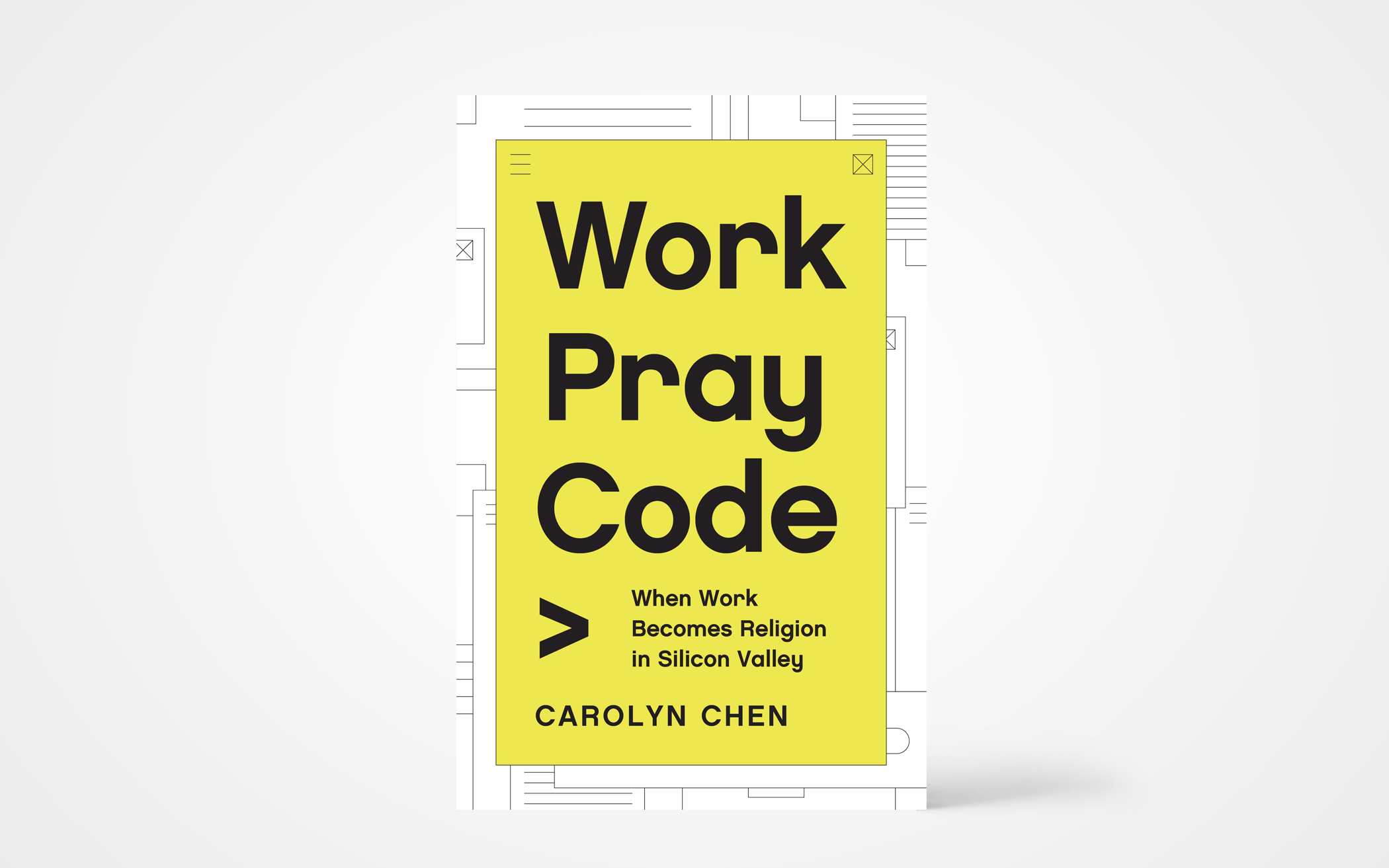What happens when the familial and religious structures people rely on for the spiritual, emotional, and physical needs are replaced by the workplace? That’s the story of Silicon Valley that Carolyn Chen tells in Work Pray Code.
From big tech to start-ups, Silicon Valley companies, flush with cash and eager to maximize the productivity of their software engineers, find ways to keep their workers focused and motivated. This started with serving lunch, and expanded into yoga classes, and finally led to a holistic attitude Chen calls corporate maternalism. In order to stave off burnout in workplaces where 14-hour days can be considered standard, “spirituality is now one of the many perks of the Silicon Valley workplace, along with free meals, smoothies, gyms, and massages.”
Work becomes religion, for many. The tech workers have faith in their companies. Chen tells the story of Cecelia, who gladly immersed herself in her workplace until facing a “crisis of faith” as the result of a lawsuit against the company, saying, “It was like it lost this higher purpose that I thought the company had.” Workers are finding a purpose in work that replaces church attendance and religious belief, until that work fails them.
Silicon Valley also takes religious practice and uses it to develop more productive workers while simultaneously taking the religion out of the practice. It is typical for the companies to offer meditation “based on Buddhism” but redeveloped to be less spiritual and to increase focus and productivity. The HR managers Chen interviews are upfront with the fact that the meditation sessions are not for the individuals to find their own spiritual fulfillment but for the end of increasing the company’s bottom line.
In the conclusion of the book, Chen does discuss the future of these workers. When they started working from home in 2020, their lives changed. Chen describes the change by saying, “They no longer live their lives at work. Instead, work now lives with them at home. It’s become the newest family member and has settled in, like a newborn, requiring constant attention and devotion.”
Since the writing of Work Pray Code, the tech landscape has continued to change. In 2023, there were massive tech layoffs and budget cuts. What will happen to all the people laid off from the place that has been their social structure? What happens when that institution no longer is willing to provide the perks and the community? Where do they go to get these needs met?
What if the church becomes a welcoming haven for people whose lives have been disrupted? People are hungry for community and faith, even in Silicon Valley, one of the least religious areas of America. Instead of finding meaning in religion, they are finding meaning in their work. Yet as former tech workers will say, that community will fail. People become disillusioned with their companies or are abandoned by them. People still need church. How are we going to welcome them in? (Princeton University Press)
About the Author
Elizabeth Koning is a graduate of Calvin University, a member of Hessel Park CRC in Champaign, Ill., and a Ph.D. student at the University of Illinois, Urbana-Champaign in the department of computer science.

